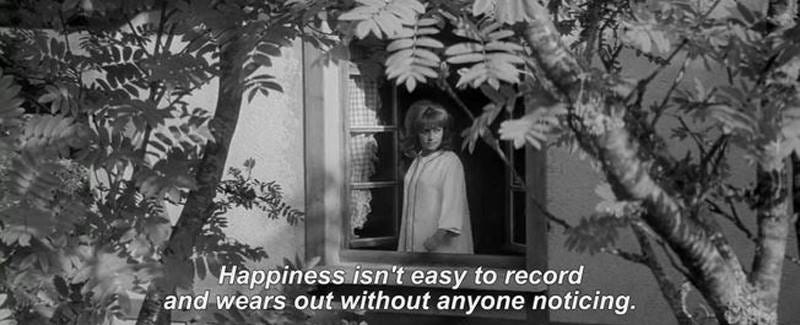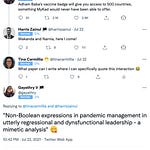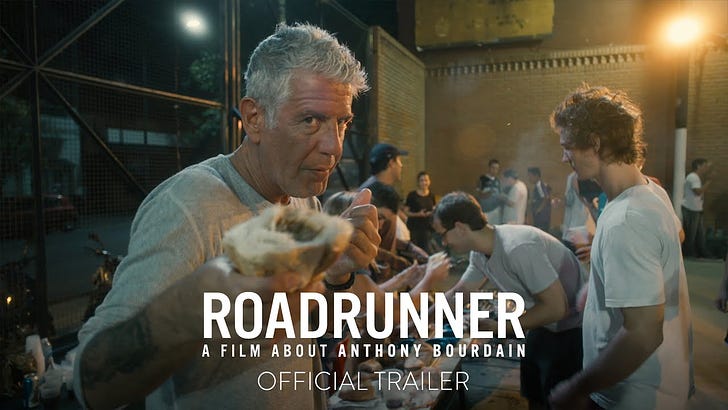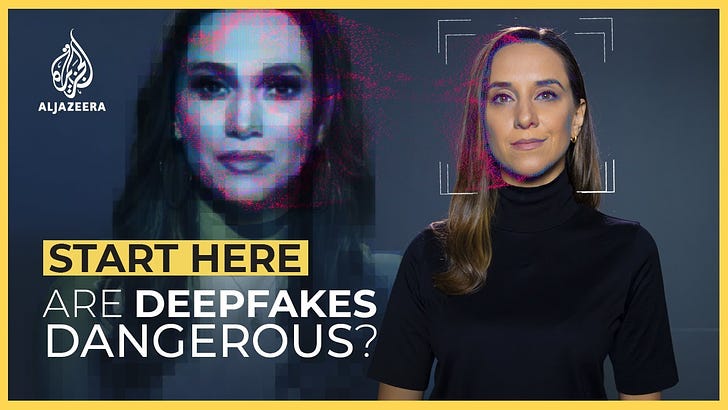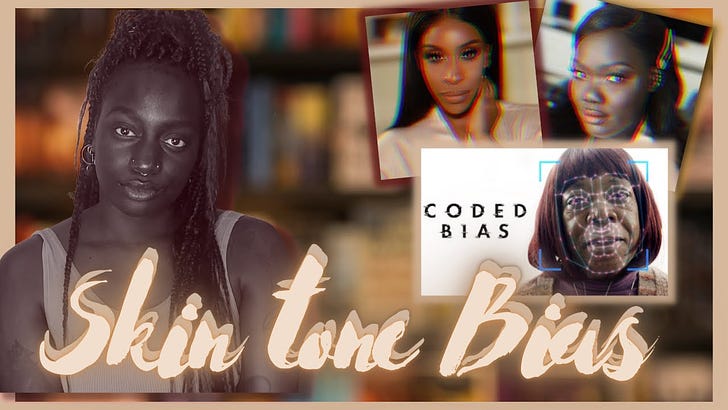Social data, sitting duck
By Tanya Basu for MIT Technology Review: How Google Docs become one of the most important tools of the resistance. While social media is useful for publicising the resistance, it is not reliable to store information that people can update and revisit.
Jim Waterson for The Guardian: Microsoft’s plan to replace editors with AI backfires after it confuses mixed-race Little Mix singers in a news story about racism. Yes, tech is racially biased because the industry is predominantly run by white males only, a reminder from Ali Breland. BBC reports that IBM abandons facial recognition tech because of concerns over racial profiling.
Matt Burgess for Wired: Google got rich from your data; DuckDuckGo is fighting back. I was introduced to DuckDuckGo last year. It is improving.
“Quarantwins”
Screenshot from Jules et Jim (1962)
I enjoy solitude, I seek it often. Even in the midst of a sea of people, solitude is a state of mind, and I am often there.
In these quarantine days, this solitary place has melded into the far more observable, measurable state of isolation, perhaps, in a smaller puddle of people. And for some, like me, it is a very observable, measurable state of aloneness. Solo. By oneself. Alone.
I know that there is a danger in conflating aloneness, isolation, and solitude with loneliness, but that is an essay for another day.
However, being alone in quarantine does come with a certain sense of loneliness. Because I know that many are alone too – but externally imposed, without the willingness to be – I feel sorry for them, and the melancholy of loneliness engulfs me.
I keep in touch with my friend Belle daily like a buddy system. I joked that I don’t want to die alone and have no one discover my body for days. Sometimes, I would see in the news that this is indeed the reality for some people – their final moments all alone with no one knowing of their demise until days later, and it would fill me with great sorrow and I would text her about it in distress. She always responds.
Because quarantine life usually isn’t very exciting, on most days, we just update each other about what we did. It’s nothing spectacular – what’s for dinner, what deadlines we have, what films we watched, what music to listen to… Sometimes the most amusing thing is having our activities synch up without planning it. Like ordering the same food for lunch or calling pest control at the same. She calls us quarantine twins. It is such a simple joy that it warrants this essay, lest I forget.
As we start to reintroduce physical socialising, I become more grateful for the liberty to choose solitude. But I also appreciate that while is easy to keep to oneself, it is even easier to feel lonely.
What I read, watch and listen to…
I’m recommending Emmanuel Olalere’s summary of LimKokWing’s King of Africa billboard scandal (the video description box also provides all the backstory you need):
I’m re-watching Ava DuVernay’s full feature documentary, 13th, made available on Youtube for free by Netflix:
Chart of the week
Reddit user TiredWireFrames posted this. I can relate, except I’m not writing a novel. It’s more like... a book. In Malay. On a technical subject. It’s going great.
Fakta, Auta & Data #2: Sudah tentu teknologi bersifat perkauman, ia direka begitu
Menurut kajian Lei Guo and Chris J. Vargo, yang diterbitkan di dalam Journal of Communication pada tahun 2017, daripada 54 juta artikel berita daripada 4,708 sumber berita di 67 negara pada tahun 2015, negara-negara kaya bukan sahaja menarik perhatian sebahagian besar berita dunia, mereka juga lebih cenderung untuk memutuskan bagaimana negara lain melihat dunia.
Sebagai contoh, dalam liputan awal mengenai bagaimana negara-negara sedunia menangani krisis koronavirus, jarang sekali kita melihat negara-negara bukan barat seperti Malaysia dan Vietnam diketengahkan sebagai salah satu negara yang menganganinya dengan baik. Malah, negara-negara barat yang dijadikan teladan sebenarnya jauh lebih buruk prestasinya berbanding Malaysia tetapi diagung-agungkan.
Lebih-lebih lagi, walaupun pengaruh bahasa Inggeris dan naratif barat terus tersebar, hakikatnya sebilangan besar negara-negara bukan barat seperti Malaysia sebenarnya tidak menggunakan bahasa Inggeris teknikal. Ia menjadi penghalang pemahaman dan menjarakkan ketidaksamaan antara kelas.
Tambahan lagi, sebahagian besar wacana umum tentang maklumat palsu menggunakan bahasa Inggeris, dan mengecualikan golongan luar bandar yang tidak berbahasa Inggeris, sedangkan kumpulan inilah yang paling terdedah kepada ancaman maklumat palsu. Maklumat dalam bahasa Melayu yang menyediakan bahasa yang tepat – konteks dan sinteks – untuk perbincangan mengenai maklumat yang salah untuk komuniti berbahasa Melayu selalunya lewat berkembang.
Tanpa bahasa yang tepat untuk membincangkannya, adakah ancaman maklumat palsu benar-benar dapat difahami? Apabila Najib Razak menyeleweng AS$4.5 bilion wang 1MDB, ramai pakar politik elit meluahkan kekecewaan mereka kerana majoriti rakyat di luar bandar tidak peduli. Tetapi, mungkinkah ia kerana tidak ada perkataan bahasa Melayu untuk nilai ‘bilion’? Bagaimana seseorang benar-benar memahami betapa besarnya jumlah yang dicuri sekiranya kiraan nombor dalam bahasa Melayu berakhir pada nilai juta?
Cabaran untuk menangani maklumat palsu terletak kepada bahasa, budaya dan geografi. Tanpa pengetahuan mengenai bahasa tempatan dan konteks sosiopolitik di kebanyakan negara di Asia dan Afrika, syarikat Big Tech yang berpusat di barat tidak mampu menangani kempen disinformasi tempatan di laman mereka.
Walaupun rangkaian sosial seperti Facebook, Youtube dan Twitter telah menambahbaikkan algoritma mereka untuk mengesan dan menghapus maklumat palsu, mereka masih menghadapi masalah pada akarnya iaitu prasangka reka (design bias). Teknologi pengenalan wajah menyasarkan suspek jenayah berdasarkan warna kulit. Sistem profil risiko juga bersifat sedemikian. Kenapa? Kerana teknologi arus perdana direka oleh lelaki barat berkulit putih.



